In the far reaches of southern Brazil, a young man with a progressive dream is ready to make his political mark.
It’s mid-morning, a Friday, and Jimmy Carter can hardly cross the main drag in downtown Piratini, a tiny Brazilian town nestled among the rolling pampas way down south, practically in Uruguay. He stops to acknowledge the drivers who honk and flash a thumbs-up. Another passing motorist pulls over, summoning Jimmy to the window for a brief chat in that hushed, conspiratorial manner of small-town busybodies the world over.
It’s two days before voters in Piratini (“pee-rah-chee-NEE”) will decide whether Jimmy—a 37-year-old Brazilian teacher—gets a seat on the city council, and people are eager to say “hi” and “good luck.”
“It’s always like this,” says Jimmy’s wife, Renata, smiling with the resigned patience of someone who’s spent an awful lot of time lately waiting on a husband who has thousands of hands to pump and leaflets to distribute and fleeting words to bandy on the campaign trail.
Jimmy was born nearby, grew up outside of town and went to high school a few short blocks down this same diminutive main drag. He left for college and came back to teach history, philosophy, sociology, and geography. On the weekends, Jimmy moonlights as an auctioneer, which takes him far and wide and gets him even better acquainted with the people of Piratini and the surrounding area. Jimmy has something to say to everybody, and everybody has something to say to Jimmy.
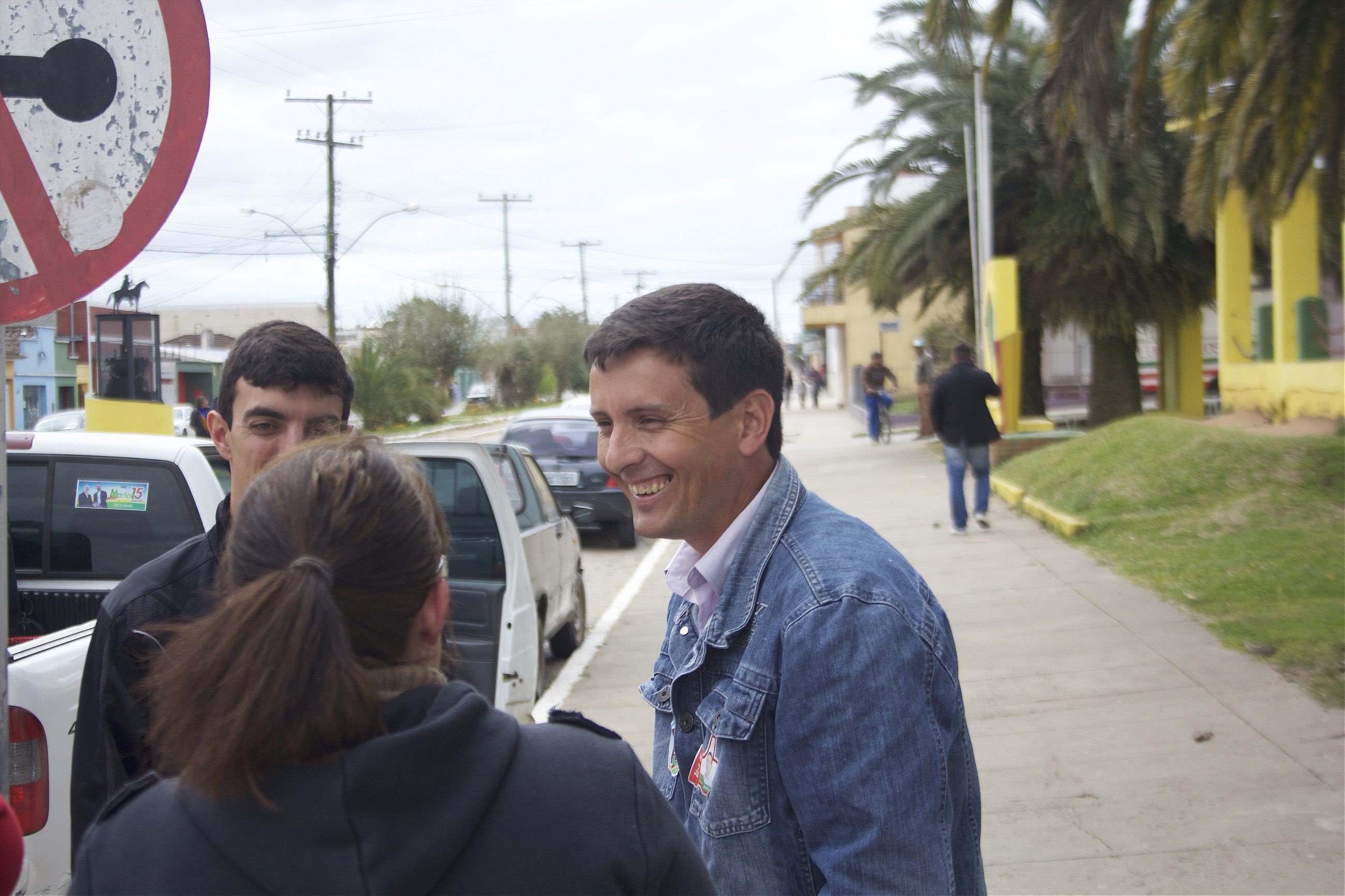
Brazilians love a good nickname; think of soccer players Pelé, Ronaldinho, or the appropriately named Hulk. The same is true in politics: from 2003 to 2011, Brazil’s president was a man known simply as Lula, a blue-collar hero whose legacy has been badly damaged by a series of political scandals. Rules governing the names under which candidates can run for office are relaxed, meaning local elections always promise some fun. This year, Batman ran for city council in suburban São Paulo, Bin Laden launched a bid for office in rural Minas Gerais, and a farmer in the small Amazonian town of Careiro da Várzea threw his hat into the ring under the name Barak (sic) Obama.
Jimmy, though, is the honest-to-God real name of Mr. Jimmy Carter Gonçalves, born in 1979, while Jimmy Carter was serving as the 39th president of the United States of America. Carter had paid a state visit to Brazil less than a year earlier, where he addressed the Congress in Brasília before flying to Rio de Janeiro to lay a wreath at the World War II memorial and meet with human rights advocates.
Brazil was then ruled by a military dictatorship, which bristled at President Carter’s foreign policy emphasis on human rights. Many everyday Brazilians, though, were enjoying increasing exposure to American culture, among them, Jimmy’s father, an orthodontist with an interest in politics who admired the United States.
“The Americans had a very large influence in Brazil then,” says Jimmy, who majored in history. While growing up, he’d overhear neighbors saying things like, “If only the Americans would take over and clean up Brazil.”
And so, some of them gave their kids names like Jimmy Carter. According to the Brazilian Institute of Geography and Statistics, nearly 1,300 Brazilians are named Jimmy. While it’s impossible to say if they’re all named for the Georgian peanut farmer turned president, the majority of Brazilians given this distinctly American name were born in the ’70s and ’80s.
PUBLIC SERVANTS LIKE JIMMY HAVEN’T BEEN GETTING PAID ON TIME FOR THE PAST YEAR
After lunch, Jimmy points his pickup down the dirt road to Cancelão, a little cluster of houses and stores about six miles north of Piratini proper but within the municipal limits. He’s running for vereador, or city councilman, as a member of the PMDB, the Brazilian Democratic Movement Party. It’s the catch-all, big-tent party of Brazil’s right-wing president Michel Temer, who took office after Dilma Rousseff, Lula’s successor from the left-wing Workers Party, was impeached earlier this year.
Motivated by a concern for social issues, Jimmy places himself on the left of the spectrum; territory occupied by the PMDB generally in Piratini, where local party affiliations and ideologies don’t always line up the way they do on the national level.
“Our state PMDB isn’t the same PMDB that’s in Brasília,” Jimmy says. “And our local PMDB is even a little different than the state party.”
Some of Jimmy’s friends have been leaning on him to embrace full-bore socialism, but he’s not there, ideologically speaking. Meanwhile, the local Worker’s Party is allied with a number of other rightist parties, including the confusingly named Progressive Party, which is also a conservative party nationally.
This is Jimmy’s second shot at vereador in Piratini. He ran eight years ago, and came up just short. He sat out the election four years ago, but was drawn back into politics when the Brazilian economy fell into a deep recession. The fiscal situation in Piratini is so dire that public servants like Jimmy haven’t been getting paid on time for the past year.
“As a teacher, I know that I can do things for people over the long term, because you’re planting little seeds,” he says. “But I think that politics has more immediacy … It has a power that enables you to do more.”
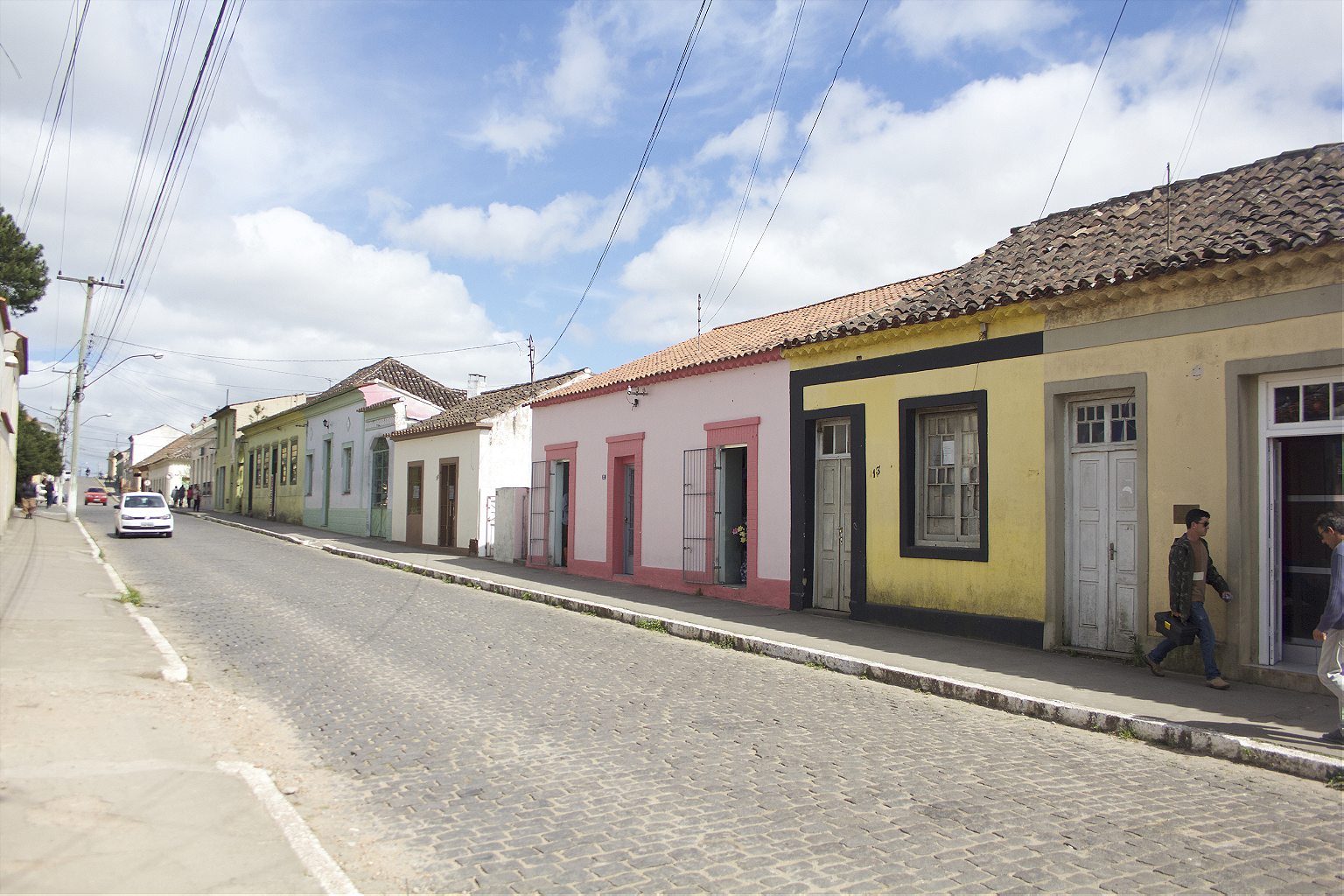
Arriving in Cancelão, Jimmy begins campaigning door-to-door. Outside a tiny, nondescript bar, he stops to chat with a weathered-looking man named Edgar Alves. After exchanging pleasantries, Jimmy leaves him with a sticker and moves on down the street. Edgar knows Jimmy, likes him, and supports his party, but won’t say whether he’ll vote for him or not. Voters only cast one vote even though there are nine vereadores to elect; out of the 27 total candidates, whichever nine win the most votes will take office in January. So while Jimmy’s PMDB party is fielding 10 candidates, a PMDB supporter has to decide whether Jimmy—or one of his fellow PMDBers—is his or her absolute favorite; there’s no such thing as voting a party ticket.
This also affects the candidates themselves. In the sense that Jimmy and the other nine PMDB candidates share a party and a campaign headquarters, they’re allies. But they’re also competitors.
It’s time to move on. Jimmy hops back in his pickup, flips on the loudspeaker strapped in the truck bed and cues up his campaign jingle. It’s an upbeat, light rock number about Jimmy-as-change-agent in Piratini, played on repeat at a blaring volume as he cruises at parade speed up and down Cancelão’s few short streets, waving at people watching from sidewalks and porches. It’s a common campaign technique here; Jimmy has no idea how many hundreds or thousands of times he’s heard the song by now. When he encounters a rival candidate crawling down the street toward him, similarly equipped with a jingle and a powerful amp, the sleepy community erupts in cacophony, Dopplering in slow-motion.
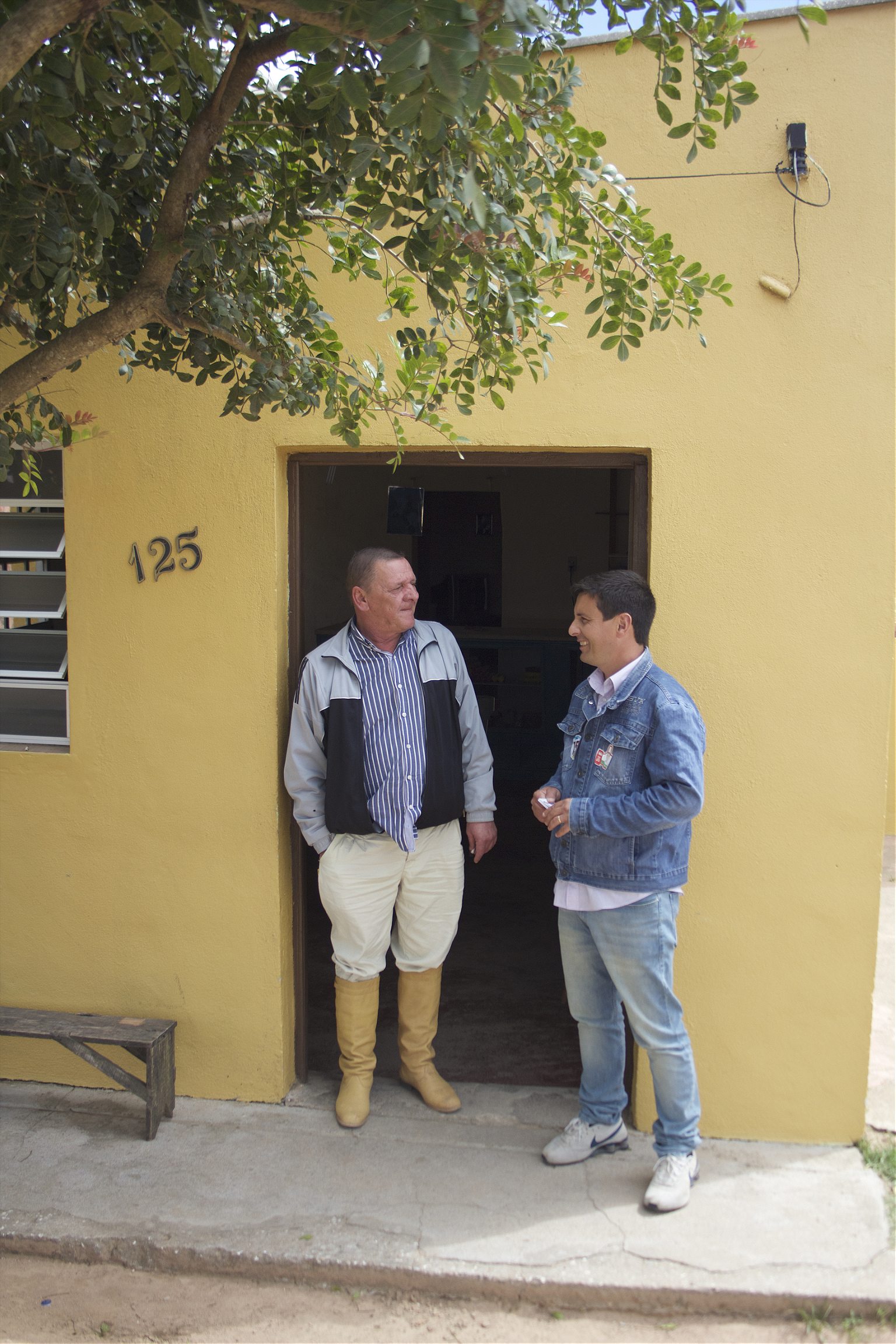
Soon enough, the last narrow side street in Cancelão peters off and the countryside begins. Jimmy—still playing his jingle—turns the truck around and begins the drive back to Piratini.
Municipalities in Brazil are more or less analogous to American counties; Piratini is both the main town where Jimmy went to high school and a surrounding chunk of Rio Grande do Sul, the southernmost Brazilian state. At nearly 1,400 square miles, it’s a shade bigger than Rhode Island; with a population of less than 20,000, it’s population density is more North Dakota. Cattle drive the local economy.
People from Rio Grande do Sul call themselves gaúchos and are, in general, immensely proud of their cowboy-esque culture. The vibe is particularly strong in rural parts of the state; here in Piratini, lots of men walk around in the traditional gaúcho get-up of knee-high boots, baggy pants, and berets. They call each other “tchê,” a bit of friendly slang whose English translation would be something like “pardner.” In Porto Alegre, the state capital, you’ll mainly find the word on tacky souvenirs or in advertising; in Piratini, they still say it often and without irony.
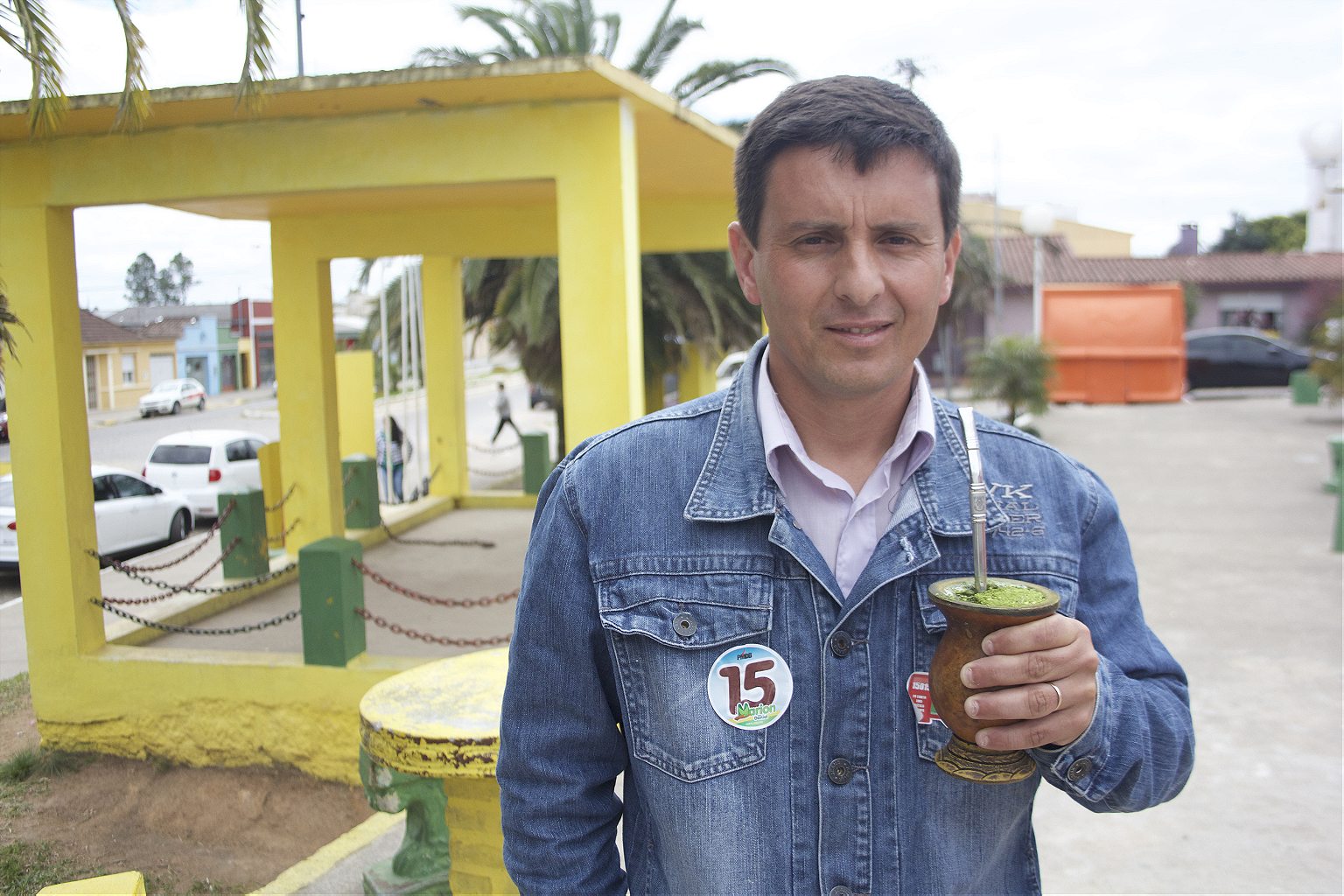
Gaúchos have a complicated relationship with the rest of Brazil. In 1836, fed up with the imperial government headquartered 850 miles to the north in Rio de Janeiro, they declared an independent Riograndense Republic, and set up their first capital in Piratini. The gaúchos lost the ensuing 10-year civil war, but not their separatist impulse. Downtown Piratini is littered with monuments and plaques and a museum commemorating the cause. The state flag of Rio Grande do Sul is the one that flew over the short-lived Riograndense Republic. Fighting broke out in Rio Grande do Sul again in the 1890s, and again in the 1920s, and again in 1930.
In 1972, the Brazilian national soccer team—then the reigning World Cup champions—came to Porto Alegre for a game against a gaúcho all-star team. They played to a brutal 3-3 draw in front of 100,000 partisan gaúchos, fiercely waving state flags; decades later, a player from the “visiting” Brazilian team recalled in a newspaper interview feeling like he’d been playing in a foreign country.
Back on the main drag in contemporary Piratini, a parked car sports a bumper sticker that reads, O Sul É O Meu País: The South Is My Country. It’s the slogan of an ongoing campaign for the peaceful secession of Rio Grande do Sul and two neighboring states. On Oct. 1, the group held an informal mock vote on the question across the region; nearly 96 percent of the 600,000 people who turned out voted to secede. Jimmy loves Piratini and its people, but won’t go on-record one way or the other on the secession issue.
“I’ve always said that I’m more gaúcho than I am Brazilian. That’s all I can tell you,” he says with a coy smile.
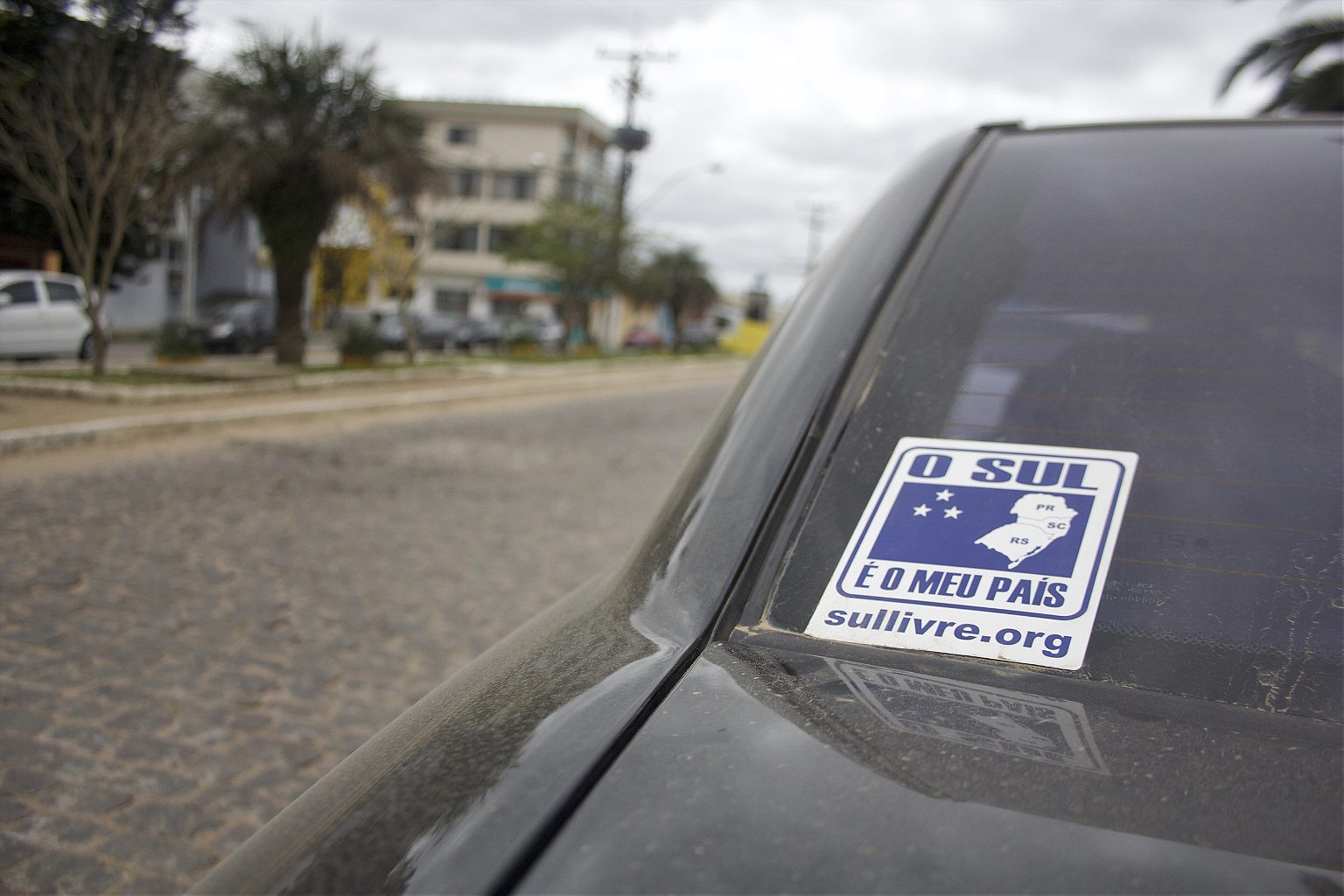
Local elections in Brazil are held two days later, on a Sunday. Neither Barak Obama nor Bin Laden come close to winning their respective races. Up in São Paulo, Batman does even worse, tied for last, having earned exactly zero votes.
For Jimmy, the second time is the charm. By the time the dust settles on Sunday evening, he’s won 628 votes, good enough for eighth place and a seat on Piratini’s city council. When his term begins on Jan. 1, his first priority will be education. He wants to inspire students by improving local sports and arts programs.
“Education is the key to many things,” he says. “Right now in Piratini, as in Brazil in general, we’re in a huge crisis. There aren’t opportunities for young people.”
He’s already thinking about a longer-term political future. The next logical step might be running for mayor. Then there’s the state legislature to consider. But he’s taking things one at a time. For now, here in Piratini—quiet, proud, and broke—there’s plenty to keep him occupied.
“I just took my first step on a journey that I know won’t be easy,” he says. “I’m determined to achieve my goals.”